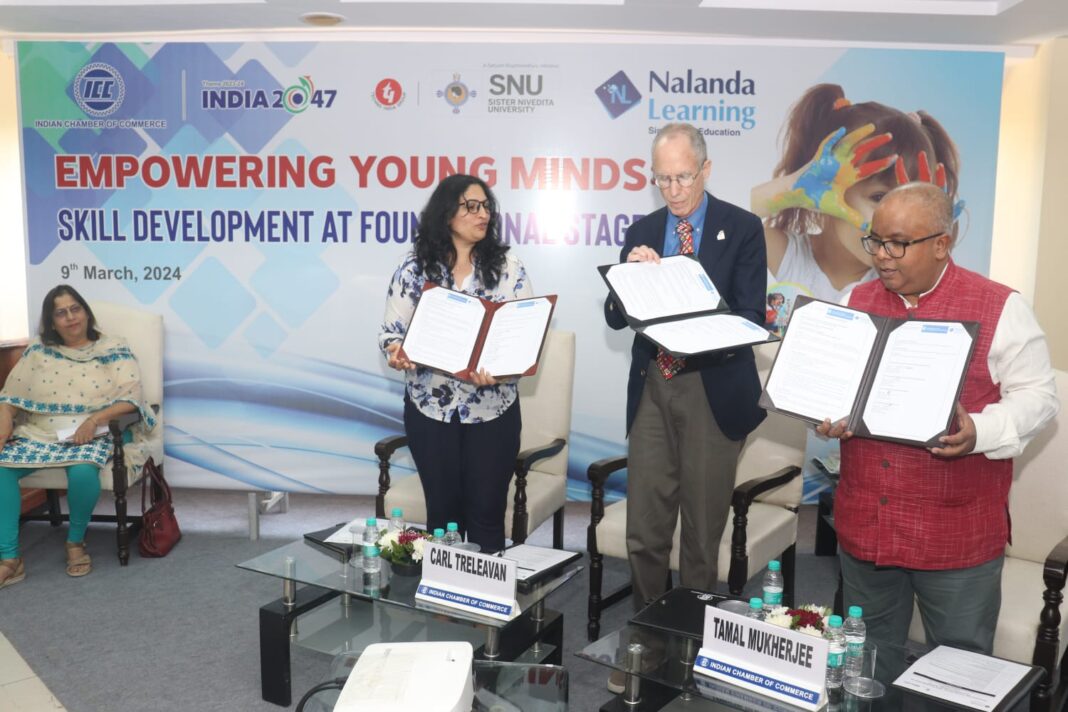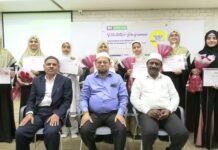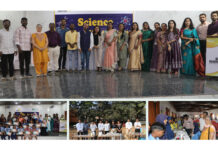Nalanda Learning Partners with Rotary to Design Teacher Training Programs for Early Learning, Aligning with National Education Policy Goals
In a move aimed at bolstering the implementation of the National Education Policy (NEP) 2020, the Centre urged all state governments to incorporate preschool foundational learning into the formal curriculum. This directive, targeting children aged 3 to 6 years, underscores India’s commitment to advancing educational standards nationwide.
Recognizing the significance of foundational literacy and numeracy (FLN), commonly referred to as FLN, India, alongside other nations in the Global South, emphasizes the critical role of early childhood care and education (ECCE) in fostering these essential skills.
Speaking at an event organised by Indian Chamber of Commerce (ICC)commemorating the signing of a memorandum of understanding (MoU) between Nalanda Learning, a leading preschool education company operating under the brand “Little Laureates,” and the Florida-based Rotary Action Group, Anup Rajput, head of publication at NCERT, Ministry of Education, highlighted the urgency of achieving FLN skills. Rajput emphasized the need to shine a similar spotlight on ECCE to realize FLN goals effectively.
“The NEP 2020 guidelines also direct schools and pre-schools to teach children in a holistic student centred manner through interactive physical and digital assets. Nalanda Learning’s integrated digital platform, incorporating engaging content, live classes, and interactive games, serves as a catalyst for the development of literacy and cognitive skills in early learners. Hence there is an imminent need of skilled teacher training programme for successful implementation of NEP 2020,” said Rajput.
Founder Tamal Mukherjee emphasized the organization’s pivotal role in aligning with NEP 2020 and the National Curriculum Framework, offering comprehensive support to stakeholders in the early childhood education sector.
“Nalanda Learning is playing a key role in the implementation of early child education as guided under NEP 2020 and National Curriculum Framework by educating all the stakeholders and not just preschool owners. It is creating an atmosphere for teachers training, community development, and caregiver development and also helping them with sustainable technology,” Mukherjee said.
Mukherjee underscored the importance of ECCE not only in preparing children for school but also for life, emphasizing its role in shaping cognitive and physical development. With the evolution of teaching methods towards learner-centred classrooms and experiential learning, Nalanda Learning stands out as a crucial resource for preschools seeking guidance in implementing holistic education approaches.
“Rotary International task force is helping Nalanda Learning not only for Indian education system but also globally to educate the stakeholders involved in early child care education as designed by NCERT and Government of India,” Mukherjee said.
“As children already come to school at different levels of understanding, early primary school is always a catch-up game for them without a strong grasp of these basic essentials. Perhaps an even more important element is the development of body and brain that happens during this time and defines IQ and physical prowess for life, thereby making ECCE essential for not just school readiness but also life readiness,” added Mukherjee.











